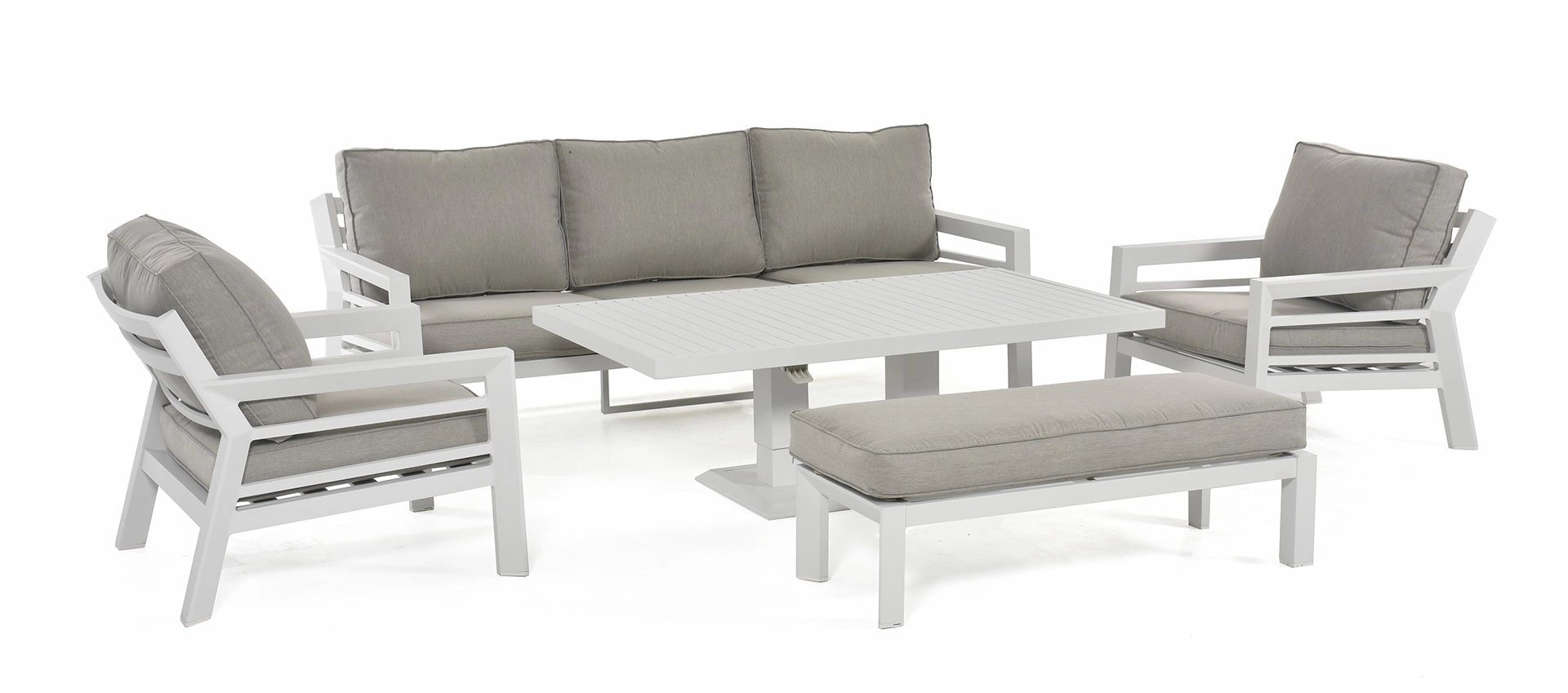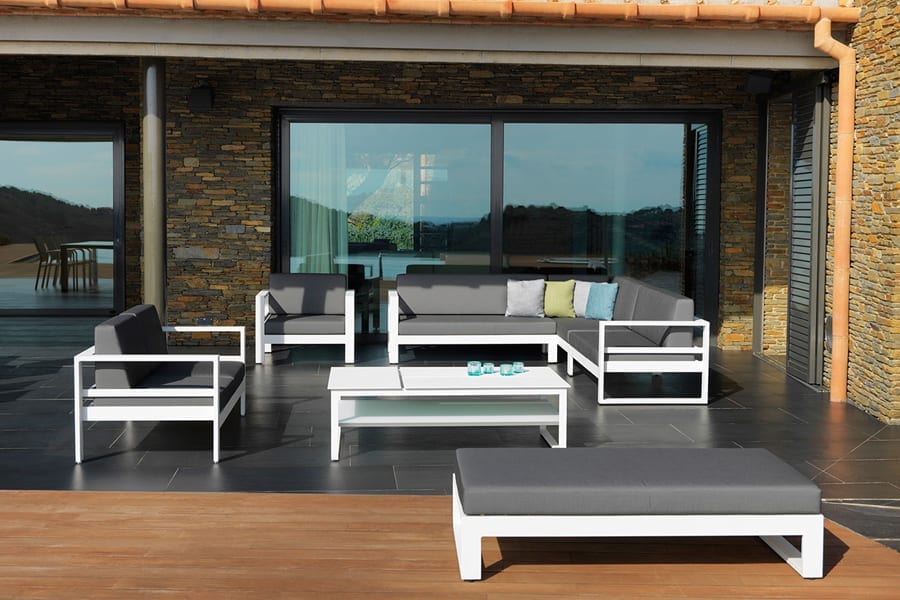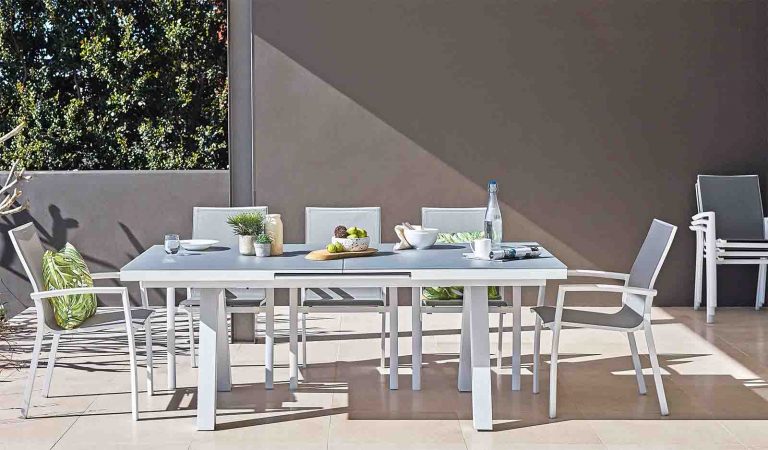Product Description
Product Description
Product Category: Workshop Workbench
The anti-static workbench is mainly suitable for the electronic industry and places with strict requirements on static electricity. The safety of the product can be guaranteed by using the anti-static workbench.
Factory picture
Manufacturing Equipment
Production Line
CHINAMFG & Shipping
What is Aluminium Extrusion?
Extrusion is the introduction of a heated aluminium ingot into a container and forcing it at high pressure through the profiled opening of a die which corresponds to the cross-section of the extrusion.
Why Aluminium Extrusion?
More and more people are realizing the benefits that aluminium extrusion can offer: The unique properties of aluminium in combination with the virtually unlimited opportunities the aluminium extrusion process gives to adapt product shape to innovate, reduce cost and maximize efficiency. From automotive to architecture, furniture to facades, lifts to lighting, the use of aluminium extrusions is extensive and new applications are being discovered every day.
Besides, the cost of aluminium extrusion is significantly lower than other processes, such as casting or forming and other extrusion processes such as plastic. Costs vary depending on the size, type, and complexity of extrusion.
In addition, the low density of aluminium results in a lightweight profile compared to other materials, which is easy to handle down the supply chain, as well as being cheaper and more environmentally friendly to transport.
How to change the design into a real product?
CAD drawings evaluation as per extrusion natures-
CAD drawings finalized-
Tooling drawings approved and 100% prepayment for tooling fee-
Tooling development-
Extrusion-
Off-tool samples for approval-
30% Prepayment for bulk production-
Bulk production-
Balance payment-
Delivery
Our Advantages
1. Technician team: over 30 years of experience in Aluminium extrusion for industrial application.
2. Rich source of Aluminium ingot locally.
3. Export staff embodied with fluent English communication skills, good knowledge in aluminium extrusion industries, and exports. Stable and reliable to help to sort out all problems.
4. Wide range of Aluminium alloy materials available.
5. Undertake any quality problems unconditionally.
FAQ
Q1: Any MOQ required?
A: We accept any quantity you may need. But there will be a set-up charge for small orders.
Q2: What is the lead time for tooling and off-tool samples?
A: For small tooling (External size less than 229mm), it takes about 10-15 days for tooling and about 5 days for off-tool samples preparing.
Q3: How about the payment terms?
A: For tooling, 100% prepayment by TT bank; for bulk production, 30% prepayment by TT bank, and balance against delivery.
Q4: Will you send videos or pictures in the processing?
A: Yes, we will keep you updated about the status here by sending videos or pictures.
You can start with a small trial. Just send me your drawings!
Look CHINAMFG to hearing from you.
/* January 22, 2571 19:08:37 */!function(){function s(e,r){var a,o={};try{e&&e.split(“,”).forEach(function(e,t){e&&(a=e.match(/(.*?):(.*)$/))&&1
| After-sales Service: | After Sales Guaranteed |
|---|---|
| Type: | Window & Door Aluminium Profile, Industrial Aluminium Profile |
| Grade: | 6000 Series |
| Temper: | T3-T8 |
| Window & Door Aluminium Profile: | 60 Series |
| Alloy: | Alloy |
| Samples: |
US$ 2/Piece
1 Piece(Min.Order) | |
|---|
| Customization: |
Available
|
|
|---|

Are there eco-friendly or sustainable options for aluminum table production?
Yes, there are eco-friendly and sustainable options for aluminum table production. Here is a detailed explanation:
1. Recycled Aluminum: One of the most sustainable options for aluminum table production is using recycled aluminum. Recycled aluminum is obtained from post-consumer or post-industrial sources and can be melted down and reprocessed to create new aluminum products, including tables. Using recycled aluminum reduces the need for extracting and refining raw materials, conserves energy, and helps minimize waste. Additionally, recycled aluminum maintains the same quality and properties as virgin aluminum, making it a viable and environmentally friendly option for table production.
2. Energy-Efficient Manufacturing: Another aspect of eco-friendly aluminum table production is employing energy-efficient manufacturing processes. Aluminum manufacturers can implement energy-saving technologies, such as using renewable energy sources or optimizing production lines to reduce energy consumption. By minimizing energy use during the manufacturing process, the carbon footprint associated with aluminum table production can be significantly reduced, contributing to overall sustainability efforts.
3. Low Emissions: Sustainable aluminum table production also involves minimizing greenhouse gas emissions. Aluminum manufacturers can adopt practices that reduce or eliminate the release of harmful emissions into the atmosphere. This can be achieved through the use of advanced filtration systems, the proper treatment of waste gases, and the implementation of emission control technologies. By focusing on reducing emissions, the environmental impact of aluminum table production can be mitigated.
4. Water Conservation: Conserving water is another important aspect of eco-friendly aluminum table production. Manufacturers can implement water recycling and reuse systems, as well as employ water-efficient processes to minimize water consumption during production. Additionally, responsible wastewater management practices can be implemented to ensure that any water discharged from the manufacturing process is properly treated to minimize environmental impact.
5. Life Cycle Assessment: Conducting a life cycle assessment (LCA) is a valuable tool for evaluating the environmental impact of aluminum table production. An LCA considers the entire life cycle of a product, from raw material extraction to manufacturing, use, and end-of-life disposal or recycling. By analyzing the various stages of production and identifying areas for improvement, manufacturers can make informed decisions to minimize the environmental footprint of aluminum tables throughout their life cycle.
6. Certifications and Standards: Various certifications and standards exist to recognize and promote sustainable practices in aluminum production. For example, the Aluminum Stewardship Initiative (ASI) provides a certification program that ensures responsible production, sourcing, and stewardship of aluminum. By choosing aluminum tables from manufacturers with recognized certifications or adherence to sustainable standards, consumers can support environmentally conscious production practices.
7. End-of-Life Recycling: Considering the end-of-life phase is crucial for sustainable aluminum table production. Aluminum is highly recyclable, and at the end of their life cycle, aluminum tables can be recycled to produce new aluminum products. Recycling aluminum requires significantly less energy compared to primary production, resulting in reduced energy consumption and greenhouse gas emissions. Encouraging proper recycling and creating infrastructure to facilitate the recycling of aluminum tables promotes a closed-loop system and minimizes waste.
By incorporating these eco-friendly and sustainable practices, aluminum table production can align with environmental goals and contribute to a more sustainable future. Consumers can support these efforts by choosing aluminum tables that are produced using recycled aluminum, manufactured with energy-efficient processes, and certified by recognized sustainability standards.

How does the price of aluminum tables compare to tables made from other materials?
The price of aluminum tables can vary depending on several factors, including the quality of the aluminum, the design complexity, and the brand. Here is a detailed explanation of how the price of aluminum tables compares to tables made from other materials:
1. Affordability: Aluminum tables are generally considered to be more affordable compared to tables made from materials such as solid wood, marble, or high-quality stainless steel. Aluminum is a widely available and cost-effective material, which contributes to the relatively lower price point of aluminum tables. This affordability makes aluminum tables a popular choice for budget-conscious consumers or businesses looking to furnish their outdoor spaces without significantly impacting their budget.
2. Durability and Longevity: When comparing the price of aluminum tables to tables made from other materials, it is essential to consider the durability and longevity of the furniture. Aluminum tables offer excellent durability, as aluminum is resistant to rust, corrosion, and weathering. They can withstand outdoor elements and require minimal maintenance. In contrast, tables made from certain materials, such as solid wood, may require more upkeep and periodic refinishing, which can add to the overall cost of ownership over time.
3. Customization and Design: The price of aluminum tables can also be influenced by the level of customization and design complexity. Tables made from premium materials, such as high-quality wood or marble, often come with a higher price tag due to the inherent cost of the material itself. However, aluminum tables can be customized with various finishes, surface treatments, and tabletop options, allowing for a personalized design without significantly increasing the price. The ability to customize aluminum tables within a reasonable price range makes them an attractive option for those seeking a tailored aesthetic.
4. Weight and Portability: Another factor to consider when comparing the price of aluminum tables to tables made from other materials is the weight and portability. Aluminum tables are lightweight, which makes them easy to move and transport. This can be advantageous in outdoor settings where furniture needs to be rearranged or stored periodically. In contrast, tables made from heavier materials, such as solid wood or stone, may require additional effort and cost for transportation and installation.
5. Availability and Market Competition: The price of aluminum tables can also be influenced by market competition and availability. Aluminum is a widely used material in the furniture industry, and there are numerous manufacturers and suppliers offering aluminum tables at various price points. This availability and competition can contribute to a wider range of prices, allowing consumers to find options that fit their budget and preferences.
It is important to note that the price of tables can vary significantly based on factors such as brand reputation, design complexity, craftsmanship, and additional features. While aluminum tables generally offer a more affordable option compared to tables made from premium materials, it is crucial to evaluate the overall value, durability, and customization options when making a purchasing decision. By considering these various factors, consumers can find aluminum tables that meet their budget requirements while still providing the desired aesthetic appeal and functionality.

What are the benefits of choosing aluminum tables for outdoor dining?
Choosing aluminum tables for outdoor dining offers several benefits. Here is a detailed explanation of these advantages:
1. Durability: Aluminum tables are highly durable and can withstand outdoor elements. Aluminum is resistant to rust, corrosion, and fading, making it an excellent choice for outdoor furniture, including dining tables. It can withstand exposure to sunlight, rain, and temperature variations without deteriorating, ensuring long-lasting performance.
2. Lightweight: Aluminum is a lightweight material, making it easy to move and rearrange your outdoor dining area. This is particularly beneficial if you plan to rearrange your outdoor space frequently or if you need to store the furniture during certain seasons. The lightweight nature of aluminum tables allows for easy transportation and maneuverability.
3. Weather Resistance: Aluminum is highly resistant to weather conditions, making it ideal for outdoor dining tables. It does not warp, crack, or swell when exposed to moisture, making it suitable for areas with high humidity or frequent rain. Aluminum tables can withstand extreme temperatures without losing their structural integrity, ensuring they remain in excellent condition throughout the year.
4. Low Maintenance: Aluminum tables require minimal maintenance compared to other materials. They do not require regular sealing or staining like wooden tables. Cleaning aluminum tables is a simple task that can be done with mild soap and water. The non-porous surface of aluminum prevents the buildup of dirt, stains, or mold, making it easy to keep the tables clean and looking their best.
5. Variety of Designs: Aluminum tables come in a wide range of designs, styles, and finishes, allowing you to choose one that suits your outdoor dining aesthetic. Whether you prefer a modern, contemporary, or traditional look, there are aluminum tables available to complement your outdoor space. The versatility of aluminum as a material allows for creative and intricate designs, providing options for different design preferences.
6. Stability and Sturdiness: Aluminum tables are known for their stability and sturdiness. They have a solid construction that can withstand the weight of dishes, food, and drinks without wobbling or tipping over. Aluminum tables provide a reliable surface for outdoor dining, ensuring a comfortable and secure dining experience for you and your guests.
7. Safe and Hygienic: Aluminum is a safe and hygienic material for outdoor dining tables. It is non-toxic and does not release any harmful substances. Aluminum tables are easy to clean and maintain proper hygiene standards, making them suitable for food preparation and dining. Additionally, aluminum is resistant to pests and insects, providing an added advantage for outdoor dining areas.
8. Cost-Effective: Aluminum tables are often more cost-effective compared to other materials commonly used for outdoor dining tables, such as wood or wrought iron. They offer durability and longevity at a more affordable price point. Choosing aluminum tables can be a cost-effective option without compromising on quality and functionality.
In summary, choosing aluminum tables for outdoor dining provides the benefits of durability, lightweight design, weather resistance, low maintenance, a variety of designs, stability and sturdiness, safety and hygiene, and cost-effectiveness. These advantages make aluminum tables an excellent choice for creating a functional and visually appealing outdoor dining area.
editor by CX 2024-03-15